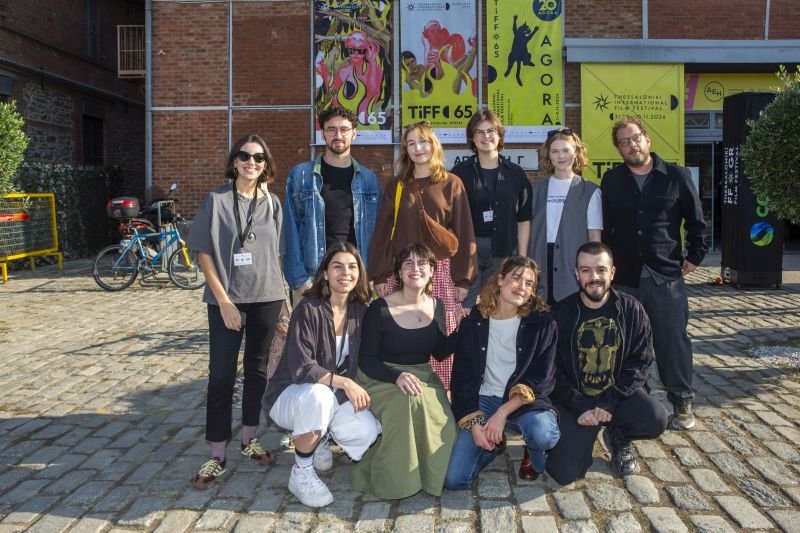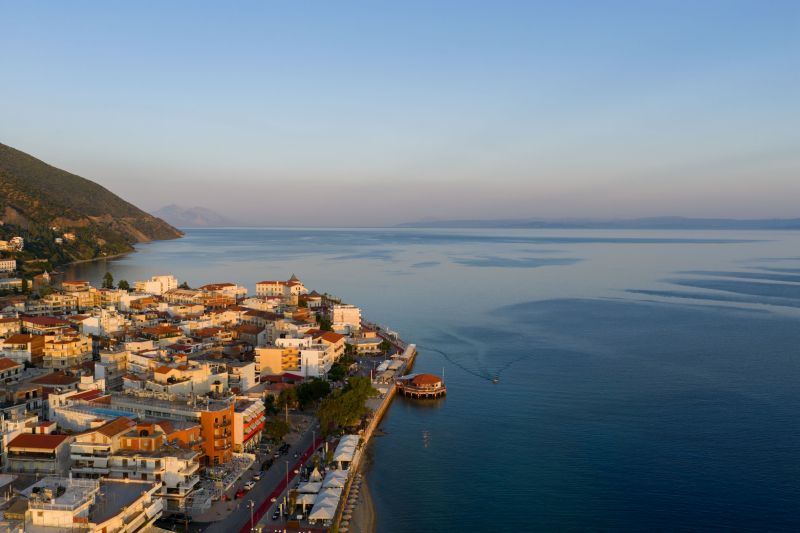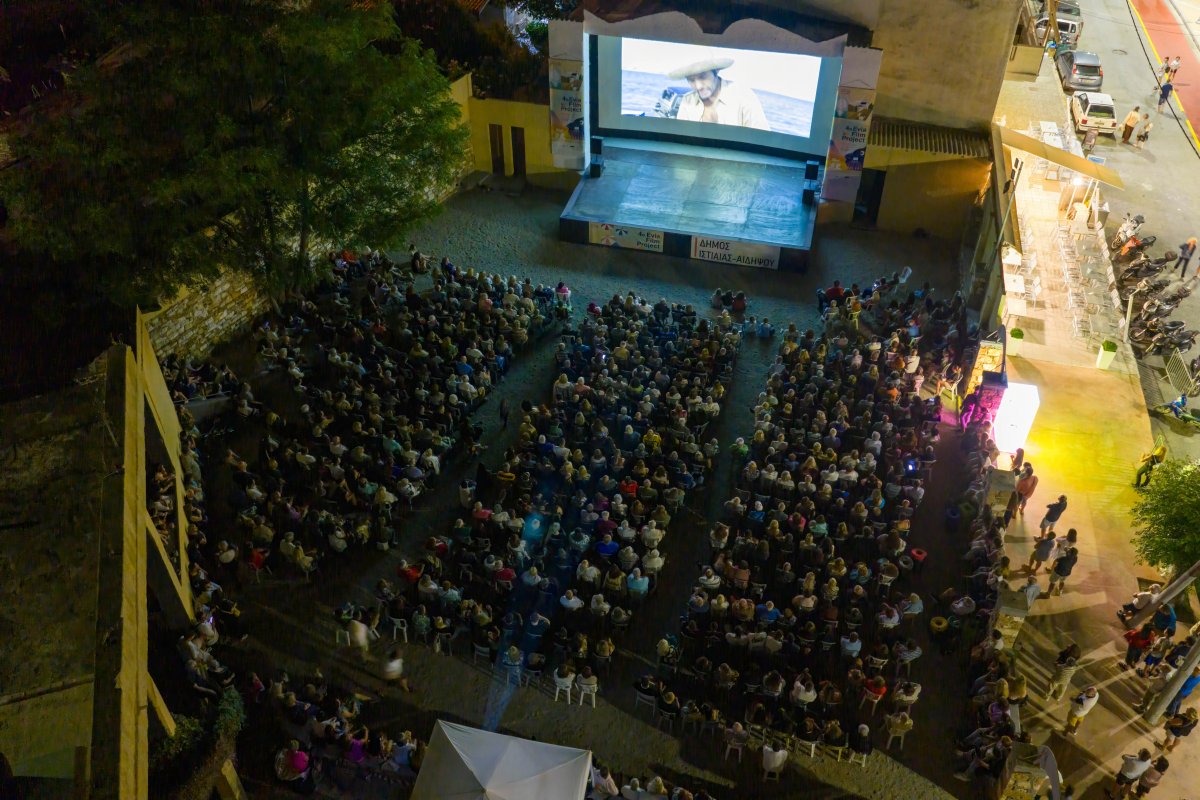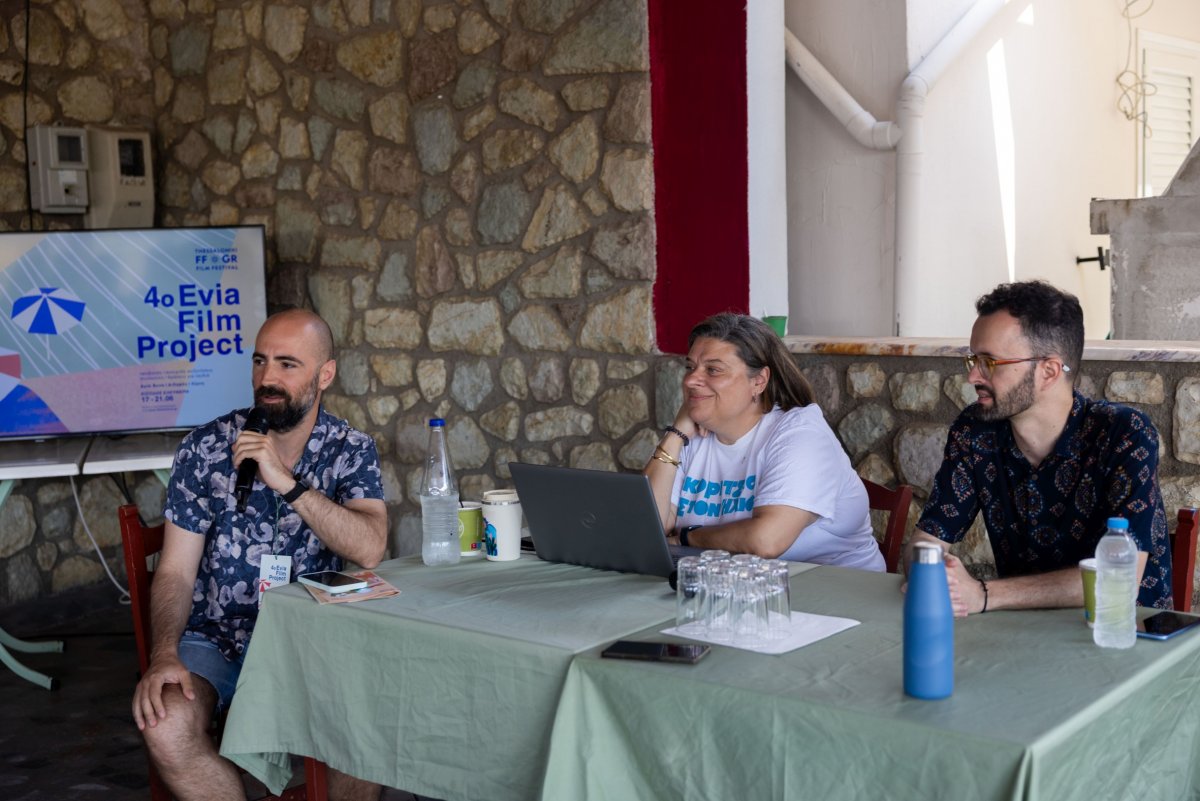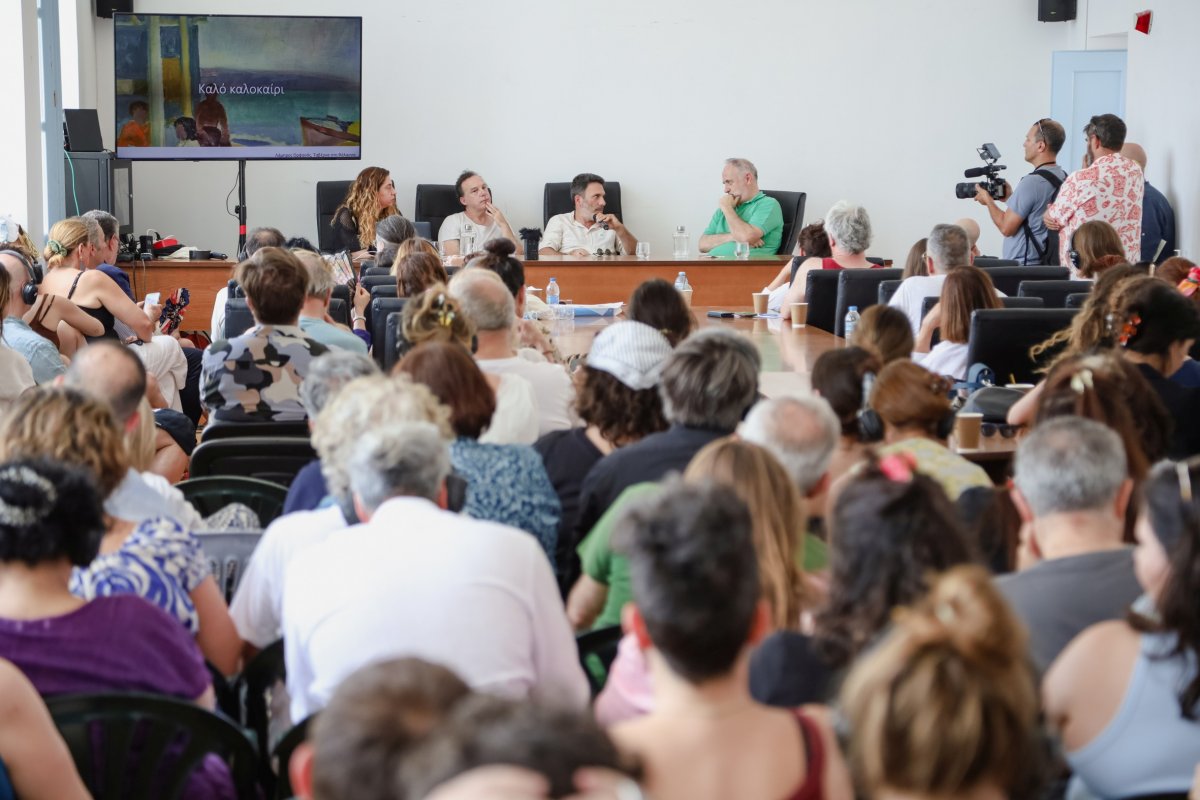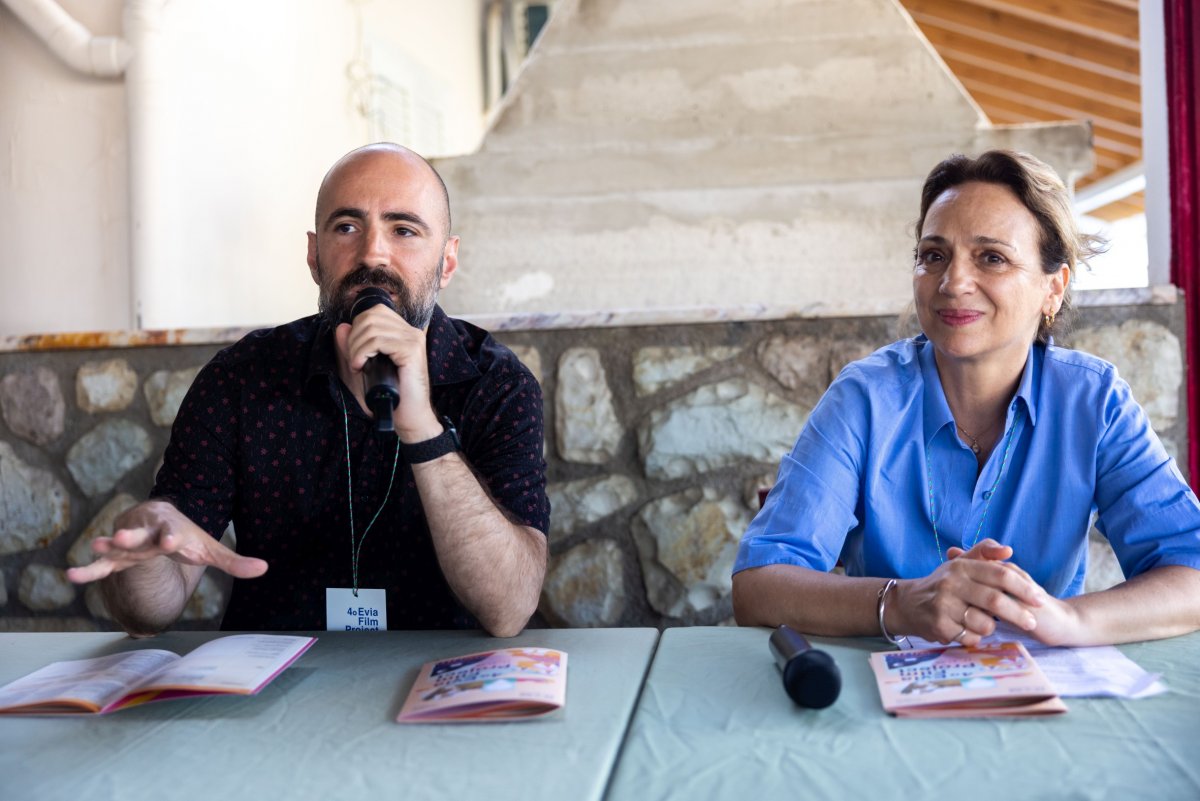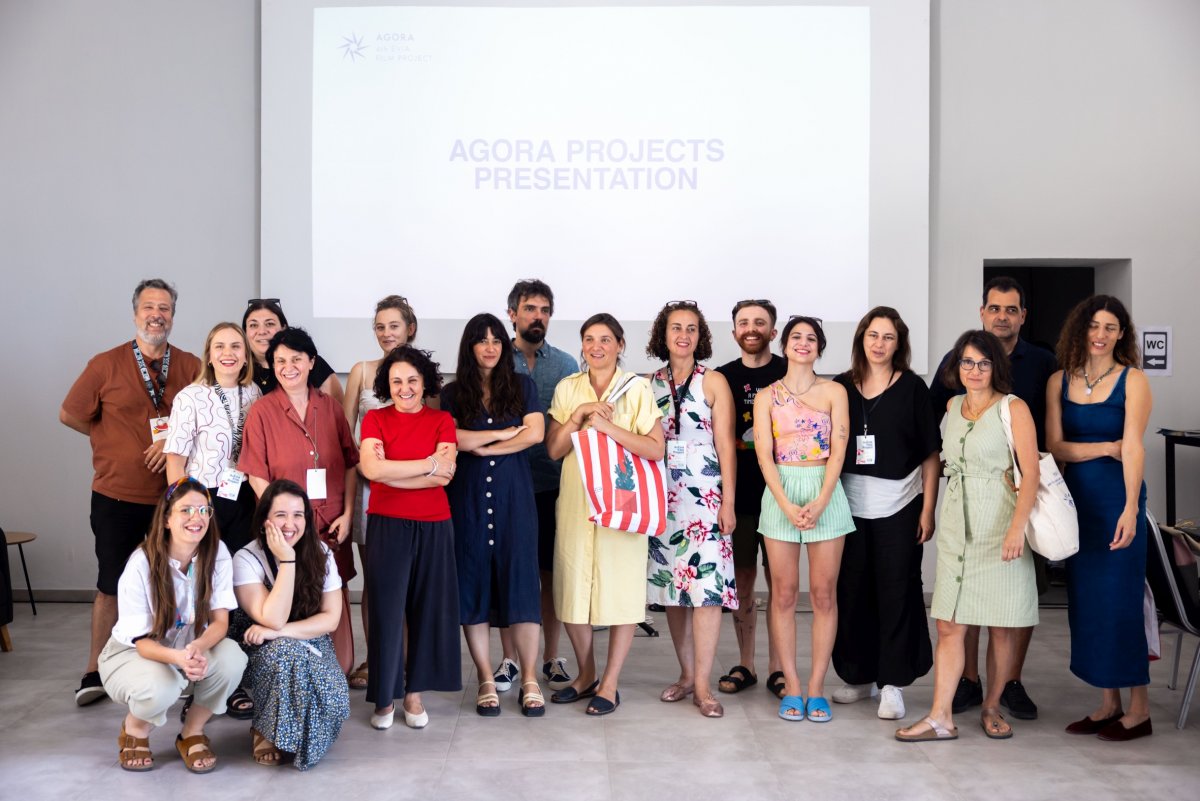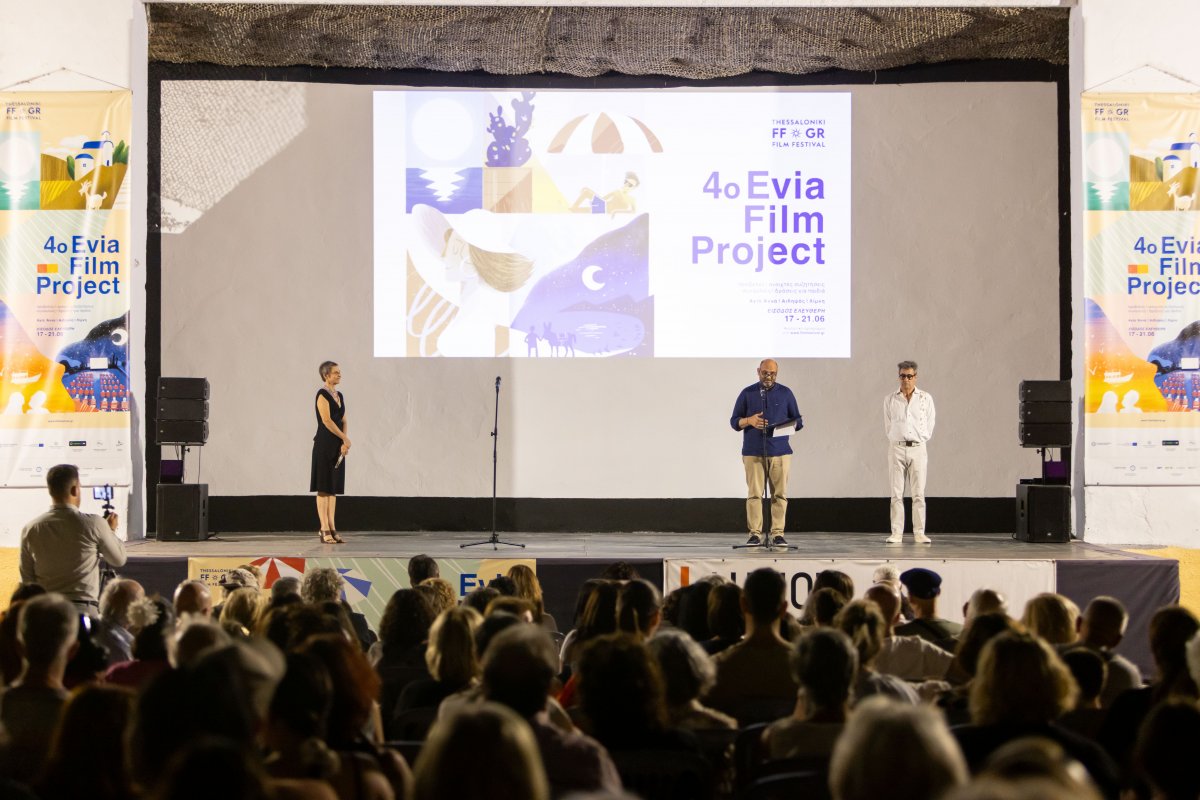Zelimir Zilnik Tribute
Zelimir Zilnik, a humanitarian radical
Zelimir Zilnik is a unique figure in European cinema. He belongs to the generation of theYugoslav newwave, also known as the “BlackWave,” and is its sole representative who remains active today. A humanitarian and a radical, while Yugoslavia was still one country, he transcended the ideological dichotomy of “official discourse”-“dissident,” and chose to follow an independent and solitary career, marked by social and political engagement. Ahead of his time, he always predicted and captured the dramatic changes in his country and the rest of Europe, pointing to problems long before they began to impact social relations.
His oeuvre, an amalgam of different avant-garde traditions, expresses the vanguard of 60s cinema and is always searching for new forms of film narrative. Influenced by Jean Rouch, Chris Marker, Vittorio de Sica and Glauber Rocha, Zilnik perceives cinema as a means of contemplation, as a tool by which to know people. Unconcerned with artistic eloquence, he emphasizes content and combines formal experimentation with a humanitarian component. Using unwrought andminimalist aesthetics, he focuses on actual events into which he incorporates fictional elements with an aim to convey more effectively the situations experienced by his characters and thus build an open narrative structure. He demystifies the rules and processes of cinema in order to create a fictional documentary genre, into which he inserts provocations, dialogue and humor. Working on a lowbudget, which allows himgreater independence, he develops his form from within his content, with a strict economy of expression. Zilnik relies on collective scripts and uses amateur actors, who play themselves and present their own dramas. In his effort to understand them, he forges personal relationships, communicating with them but avoiding any passion or sentimentality, and thus preserving his detached gaze.
In his films, Zilnik portrays, in a critical vein, the political, cultural and economic conditions that shaped the societies in which he lived: socialist Yugoslavia, West Germany of the 70s, and Serbia. He explores the communist pathology and the“third way” of home-grown Yugoslav socialism, its subsequent collapse, the civil war, the transitional chaos in Serbia, and the process of shifting to a market economy. At the same time, he addresses the contradictions of European unification, the new borders that were created in Europe, and immigration. His heroes are the marginalized and the oppressed; those finding themselves on the fringes of society: street kids, the unemployed, the homeless, local and foreign workers, transvestites, undocumented immigrants, Roma. Through their stories, Zilnik examines the relationship between ideology and society, underscores the consequences of ideology on the lives of people (who act as a mirror of their social system), and, ultimately, questions its legitimacy.
The films screened as part of the Festival’s tribute to Zilnik are typical examples of his concerns and his cinematic approach. In his first short documentaries, Newsreel on Village Youth, in Winter (1967) and Little Pioneers (1968), he documents the living conditions in Yugoslavia and tackles, in a self-contemplative way, questions of identity, class and freedom. In Black Film (1971), he explores the subject of the homeless and brings social inequality to the fore, demystifying both official socialist discourse and the artist’s personal intervention.
In Early Works (1969), his first feature-length film, Zilnik focuses on the questions and doubts that arose in the socialist world after the Prague Spring and the international student movements. He exposes the utopia of the socialist revolution and demonstrates the inability for change, as long the world is ruled by conservatism and patriarchy. A landmark-film, which deeply influenced the Yugoslav intelligentsia and which, according to theoretician and critic Marina Grzinic, is socialism’s answer to Easy Rider, in terms of its focus on the general discontent, social turbulence, sexual violence and exploitation – traits which can be attributed to the Black Wave, of which this film is a typical proponent.
During the seventies, his German period, Zilnik touches upon the relation between official discourse and social practice in liberal capitalism; terrorism; and the role of the media in the generation and exploitation of antiterrorism hysteria; and sees Europe through the eyes of immigrants, as, for example, in Inventory (1975).
The dramatic changes in Yugoslavia are chronicled in The Way Steel Was Tempered (1988), a satirical proletarian comedy which takes place against a backdrop of the financial collapse and the grey economy. Here, Zilnik comments on the end of socialism, its faded symbols, and the decline of its value system: everyone’s stealing, having a good time and leeching off the system. The only thing that sets the workers apart from their bosses is the power which is at stake.
The break up of Yugoslavia lies at the center of films such as Tito Among the Serbs for the Second Time (1994) and Marble Ass (1995). In the former, Zilnik addresses the ideological confusion produced by socialist propaganda and the media. It examines the values of Tito’s regime (fraternity and unity) and captures the difference in behavior and disposition of society towards the past and the current political situation. Marble Ass is a metaphor for the country’s disintegration. At a time when state propaganda was fueling the war by presenting fighters and patriots as heroes and models to be emulated, Zilnik calls into question every single stereotype, by choosing as his protagonists two transvestites. He thus criticizes themilitarismand patriarchal character of theMilosevic regime, and defends otherness: his socially marginalized transvestites are the only normal people in this degenerate environment, while their macho friend is no more than an unfortunate young man who was forced to go to war.
In the 00s, Zilnik returned to the subject of immigration. In Fortress Europe (2000), he presents the difficulties faced by undocumented immigrants from former communist countries as seen through the eyes of the immigrants themselves, but also of the police. He exposes the idealized image that self-sufficient Western societies put forward by highlighting the brutality of their police and their racist behavior towards citizens of poorer countries. In his Kenedi trilogy, (Kenedi Goes Back Home [2003], Kenedi, Lost and Found [2005], and Kenedi Is Getting Married [2007]), Zilnik chronicles four years of the life of an uprooted Roma, Kenedi Hasani, who is a victim of Germany’s immigration policy. Through Kenedi’s wanderings, the director records the harsh reality of the Roma, the racism they experience, the uncertainty of their future, and their struggle for survival. Zilnik gives them a voice and presents their positive traits (their values, their family ties, their communities, their traditions, their spirit of solidarity, and their inventiveness), thus negating the prejudice that exists against them and denouncing the new borders of Europe, which are borders between the rich and poor.
His last film, Pirika on Film (2013), is the portrait of Piroska Capko – whom we first met in Little Pioneers and Early Works – and at the same time a look at post-socialist reality and its impact on people’s lives.
All the films mentioned above, which are being shown in Greece for the first time, will acquaint the Greek publicwith a great, albeit unknown, auteur, whose concerns continue to be relevant to us, not only as citizens of the Balkans but, even more so, as human beings.
Dimitris Kerkinos
Total: Found results.
| 31 October 2014 | |||
|---|---|---|---|
| 00:00 | The Way Steel Was Tempered | PAVLOS ZANNAS | 028 |
| 15:00 | Tito΄s Second Time Among the Serbs | PAVLOS ZANNAS | 024 |
| 15:00 | Newsreel on Village Youth, in Winter | PAVLOS ZANNAS | 024 |
| 15:00 | Inventory | PAVLOS ZANNAS | 024 |
| 15:00 | Black Film | PAVLOS ZANNAS | 024 |
| 19:30 | Early Works | PAVLOS ZANNAS | 026 |
| 01 November 2014 | |||
| 17:00 | Tito΄s Second Time Among the Serbs | PAVLOS ZANNAS | 125 |
| 17:00 | Newsreel on Village Youth, in Winter | PAVLOS ZANNAS | 125 |
| 17:00 | Inventory | PAVLOS ZANNAS | 125 |
| 17:00 | Black Film | PAVLOS ZANNAS | 125 |
| 02 November 2014 | |||
| 15:15 | Pirika on Film | PAVLOS ZANNAS | 224 |
| 15:15 | Little Pioneers | PAVLOS ZANNAS | 224 |
| 17:15 | Fortress Europe | PAVLOS ZANNAS | 225 |
| 03 November 2014 | |||
| 19:30 | Early Works | PAVLOS ZANNAS | 326 |
| 04 November 2014 | |||
| 00:00 | The Way Steel Was Tempered | PAVLOS ZANNAS | 428 |
| 13:00 | Fortress Europe | PAVLOS ZANNAS | 423 |
| 05 November 2014 | |||
| 13:00 | Little Pioneers | PAVLOS ZANNAS | 523 |
| 13:00 | Pirika on Film | PAVLOS ZANNAS | 523 |
| 06 November 2014 | |||
| 00:00 | Marble Ass | TONIA MARKETAKI | 638 |
| 13:00 | Kenedi Goes Back Home | PAVLOS ZANNAS | 623 |
| 13:00 | Kenedi, Lost and Found | PAVLOS ZANNAS | 623 |
| 07 November 2014 | |||
| 12:45 | Kenedi Is Getting Married | PAVLOS ZANNAS | 723 |
| 08 November 2014 | |||
| 00:00 | Marble Ass | PAVLOS ZANNAS | 828 |
| 11:00 | Kenedi Goes Back Home | PAVLOS ZANNAS | 822 |
| 11:00 | Kenedi, Lost and Found | PAVLOS ZANNAS | 822 |
| 09 November 2014 | |||
| 11:00 | Kenedi Is Getting Married | PAVLOS ZANNAS | 922 |



